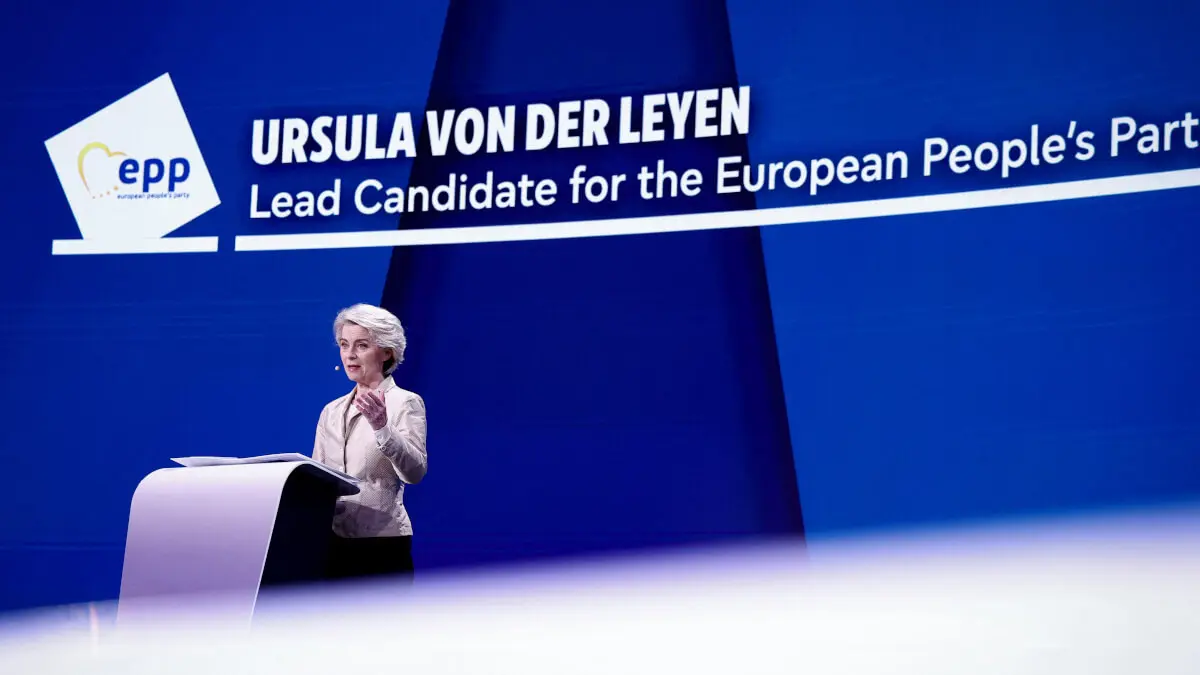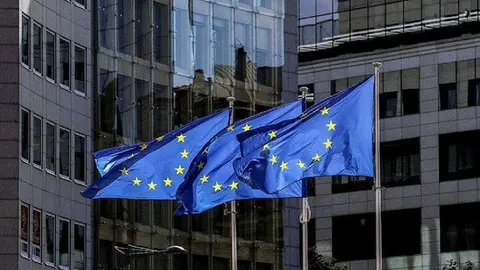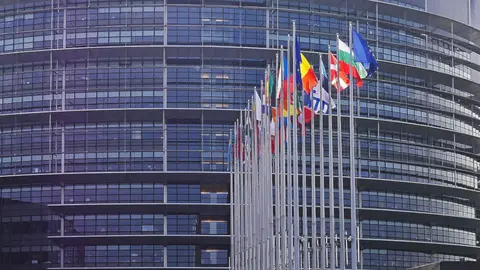EPP maintains its power in Europe despite the rise of the far right

The centre-right, represented by the European Popular Party (EPP), will continue to be the main political force in the European Union, with 8 more seats than in the last elections held in 2019. In second place are the European Socialists, where overall they have not experienced major changes, followed by the Renew group and the Greens, one of the main losers of the European Election Day.
The pro-European centrist Renew party lost 23 seats following the landslide of Emmanuel Macron's party in France, while the Greens lost 20 seats. These defeats are contrasted with the victories of the two European far-right forces, the European Conservatives and Reformists Party and the Eurosceptic Identity and Democracy Party, which gained four and nine seats respectively.
Amid this rise of the ultra-right, European Commission President and European People's Party candidate Ursula von der Leyen said that her party's victory represents a ‘responsibility’ to work for a majority of pro-European forces in the European Parliament to support a second term in office.
"There is a centre majority for a stronger Europe, this is crucial for stability. The centre is holding, but it is true that the extremes on the left and the right have gained support. That is why this result means a great responsibility for parties in the centre," said Von der Leyen.
"The result comes with great responsibility", says Ursula von der Leyen, President of the European Commission, in light of the gains made by "the extremes on the left and on the right." #EUElections2024 pic.twitter.com/9GMNqEvWx2
— euronews (@euronews) June 9, 2024
In recent years, marked by the coronavirus pandemic and its consequences, climate change and the war in Ukraine, far-right forces have established themselves in several countries such as France and Austria, where they have completely transformed the political map.
The far-right Freedom Party (FPO) is the winner of the European elections in Austria, an unprecedented victory for this party, which has managed to beat the People's Party (OVP) thanks to a populist and Eurosceptic discourse.
Updated seat projection for the new Parliament based on available provisional or final national results published after voting finished in all member states as of 01.07 CET on 10 June.
— European Parliament (@Europarl_EN) June 9, 2024
The group composition is based on structure of outgoing Parliament. https://t.co/FxYGUAeHfo pic.twitter.com/x6psQhNWBh
Macron calls legislative elections after his defeat
In France, Marine Le Pen has been one of the main winners on the continent. Her party won more than 31% of the vote, the best result in the history of the National Rally (RN).
The state of France this evening
— Sophie Pedder (@PedderSophie) June 9, 2024
This shows the party that came top in voting for the European Parliament on June 9 in every commune in France. Brown represents the far right pic.twitter.com/PP0C5KjrIW
Faced with this result, President Macron announced legislative elections to be held on 30 June and 7 July. "At the end of the day, he could no longer look the other way. Added to this situation is the fever that has infected the public and parliamentary debate in our country," said Macron, who won half as many votes as Le Pen, from the Elysée Palace.
J’ai dissous ce soir l’Assemblée nationale. Une décision grave, lourde, mais avant tout un acte de confiance en vous, mes chers compatriotes. pic.twitter.com/EFeVCDzrlb
— Emmanuel Macron (@EmmanuelMacron) June 9, 2024
Germany has also seen a significant rise in the far right, represented by the Alternative for Germany (AfD). The AfD came in second behind the conservative bloc. In third place was the Social Democratic Party (SPD) of Chancellor Olaf Scholz, which obtained 13.9% of the votes.
In Italy, one of the countries with the most weight in the EU, Prime Minister Giorgia Meloni consolidated her power after obtaining more than 28% of the votes in the European elections.
🔵 Fratelli d’Italia si conferma primo partito della Nazione, superando il risultato delle politiche.
— Fratelli d'Italia 🇮🇹 (@FratellidItalia) June 9, 2024
Grazie agli italiani che continuano a credere in noi. Adesso cambiamo l’Europa. pic.twitter.com/fGnE7XIplM
While in other countries such as Spain, Belgium and Greece the right also won, only in the Nordic countries did left-wing parties win. In Portugal, too, the Socialists have narrowly beaten the conservatives of the Democratic Alliance.
Disagreements within the far right
It should be noted, however, that the European far-right formations are not homogeneous, but that there are ideological differences between the parties in each country. Many of these disparities have to do with their positions on key issues such as the European Union, the war in Ukraine or even their views on Germany's Nazi past.
In this regard, France's Marine Le Pen recently broke with her hitherto German AfD allies after Maximilian Krah, the party's candidate for the European elections, admitted in the Italian daily La Repubblica that he would never say "that anyone who wore an SS uniform was directly a criminal".
In response to these controversial comments, French party president Jordan Bardella, who led the RN list in the elections, decided "not to sit down any more" with the Alternative for Germany MEPs. The League, the party of Italy's deputy prime minister Matteo Salvini, also joined this decision.










